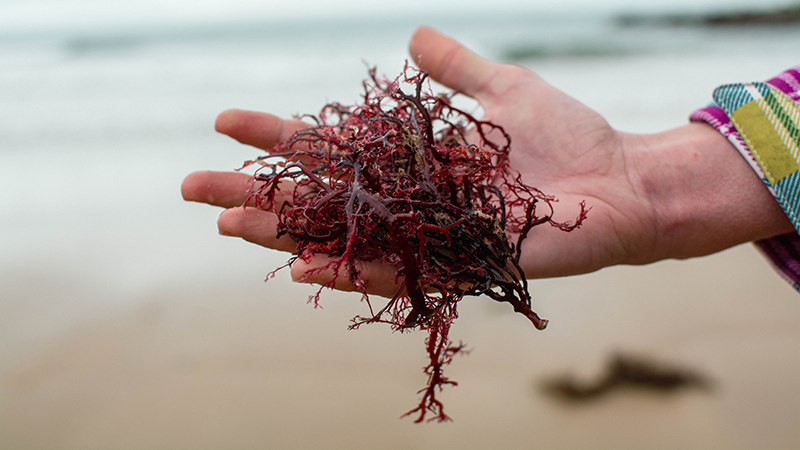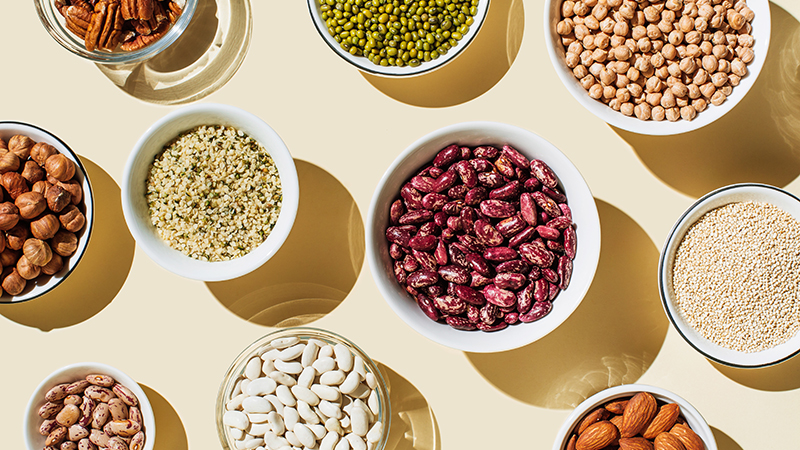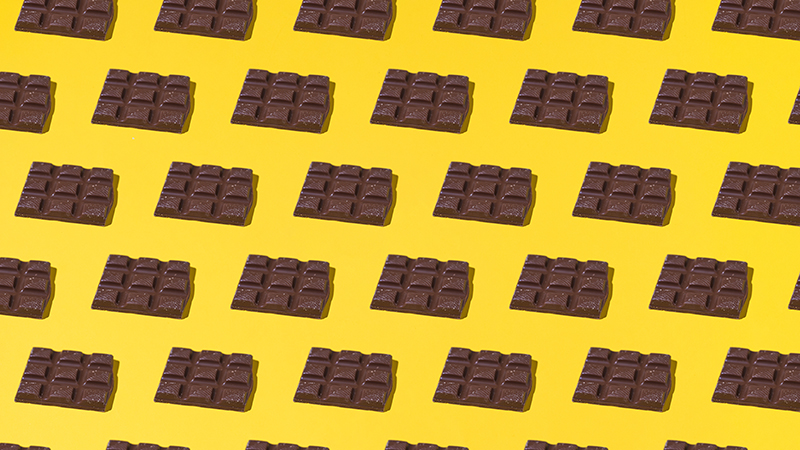Eats to Help You Sleep
What to Eat and Avoid Before Bed
Updated June 2025
When sleep doesn’t come easily, we all have our go-to solutions. Maybe it’s picturing a peaceful scene, or perhaps it’s the comfort of warm milk or a little peanut butter on toast.
Foods can make you feel sleepy or more alert, depending on how they affect your body. Knowing which foods can help you fall asleep and which may keep you up can help you plan your meals and snacks effectively.
Ian S. Katznelson, MD, a neurologist and sleep medicine physician at Northwestern Medicine, shares the best — and worst — foods to eat before bed.
Snacks for Sleepiness
The key is to pick foods that contain nutrients and other compounds known to promote relaxation and sleep, such as:
- Tryptophan, an amino acid that promotes serotonin production. Serotonin is a hormone that helps regulate your sleep. Your body can’t produce tryptophan on its own — it has to be obtained through your diet. Good sources: turkey, chicken, fish, eggs, cheese, edamame, peanuts, tofu, quinoa and pumpkin seeds.
- Melatonin, a hormone your body makes to help with your sleep cycle. It can also be found naturally in some foods. Good sources: tart cherries like Montmorency cherries, unsweetened tart cherry juice, eggs, milk, pistachios and almonds.
- Potassium and magnesium, nutrients that help promote muscle relaxation. Good sources for both: bananas, avocados, spinach and sweet potatoes.
Consider trying the following evening snacks, which contain one or more sleep-promoting nutrients to help you fall asleep:
- Peanut butter on whole grain bread
- Cheese on whole grain crackers
- Fortified cereal and milk
- A handful of almonds
- Unsweetened tart cherry juice
- Greek yogurt with sliced bananas
Sleep-Friendly Eating Habits
A balanced combination of all the food groups, like meals that feature turkey or fish as well as complex and whole grain carbohydrates like brown rice or quinoa, can also prime your body for bed. Complex carbohydrates can keep blood sugar levels stable and sleep solid, while protein can help the release of tryptophan. A little fat, like peanut butter, can slow the absorption of carbohydrates to help you wake up rested.
“Many herbs, often found in teas like chamomile and mint are considered sleep-inducing, while the dairy in warm milk is effective as well,” says Dr. Katznelson.
As for whether you should eat before bed, research suggests that eating a nutritious snack before bed can be beneficial, although it depends on what and how much you eat, as well as your individual medical conditions. For example, if you have gastroesophageal reflux disease (GERD), eating before bed may negatively impact your sleep. If you are managing your blood sugar, a small snack near bedtime might be recommended by your physician to prevent low blood sugar (hypoglycemia).
Foods to Avoid at Night
Simple carbs and saturated fats fall into the danger zone for pre-sleep snacks. Both can reduce serotonin and be difficult to digest. In practice, this means avoiding:
- High-fat foods: burgers, pizza, chips and fast food
- Spicy foods: foods made with curry, hot peppers, wasabi, horseradish or hot sauce
- Sugary foods: pastries, ice cream, candy and sugary cereals
- Acidic foods: tomatoes, tomato-based sauces, citrus fruits and onions
- Caffeinated food and drinks: coffee, tea, chocolate, energy drinks, soda
- Alcohol
“Alcohol can make you sleepy in the short term, but it can also cause disorganized sleep,” says Dr. Katznelson.
How late can you have caffeine?
Caffeine affects individuals differently and can stay in your system for hours at a time. You should avoid caffeine at least two to three hours before you go to bed.
“Everyone has different levels of caffeine sensitivity,” says Dr. Katznelson. “In the susceptible individual, even caffeine close to noon can fragment or disorganize night sleep.”
Maintaining a well-balanced diet of fruit and vegetables, lean proteins and complex carbohydrates across all meals can promote healthy sleep, helping you fall asleep at a regular time and wake up feeling refreshed.






